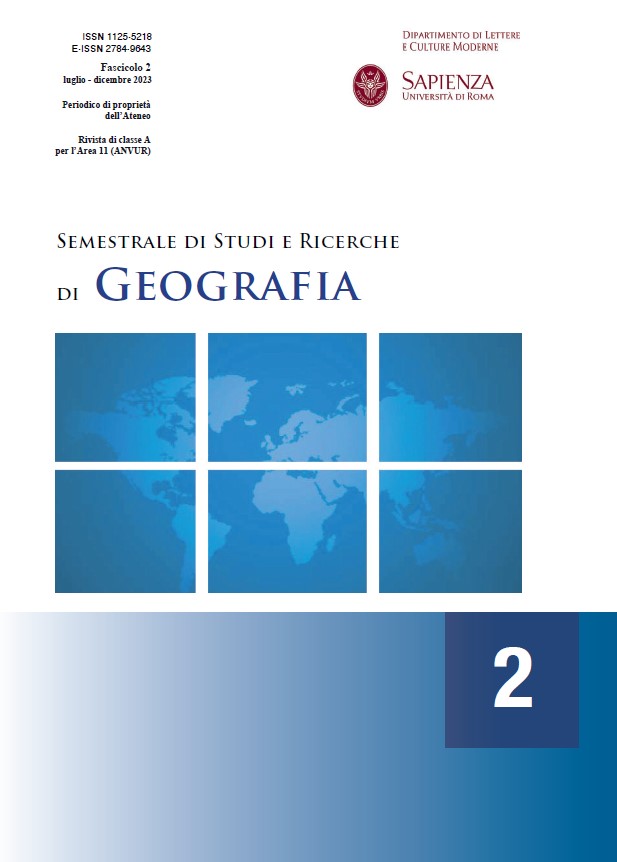Demographics, Land Owenship and Taxation in the Land Register of a Small Rural University: The Case of Massa Inferiore in Terra di Lavoro
DOI:
https://doi.org/10.13133/2784-9643/18342Keywords:
Catasto Onciario, Terra di Lavoro, demography, landownership, taxesAbstract
This work aims to analyze a precious historical source, such as the "onciario" or "carolino" cadastre, for the study of demography and land ownership of the universities of the Kingdom of Naples in the mid-eighteenth century.As case study was considered that of a small rural university in the ancient province of Terra di Lavoro. An initial phase of reading and interpreting the text was followed by the extraction and organization, using IT tools, of the data contained therein, with their analysis and the consequent production of comparative graphs and tables.This approach has made it possible to characterize the study of the demographics and socio-economic conditions of the population, highlighting family structures and their composition, properties and related tax burdens. In the case of Massa Inferiore, this study highlights how the onciario, who intended to distribute taxes equally in relation to the assets owned, according to a more modern and efficient vision of the taxation system, in the general reformist climate of the time, actually, and an incompletely implemented reform, perpetuating ancient privileges and weighing once again largely on the poorer classes.
Downloads
Published
Issue
Section
License
Copyright (c) 2023 Semestrale di studi e ricerche di geografia

This work is licensed under a Creative Commons Attribution 4.0 International License.
Gli autori che pubblicano su questa rivista accettano le seguenti condizioni:- Gli autori mantengono i diritti sulla loro opera e cedono alla rivista il diritto di prima pubblicazione dell'opera, contemporaneamente licenziata sotto una Licenza Creative Commons - Attribuzione che permette ad altri di condividere l'opera indicando la paternità intellettuale e la prima pubblicazione su questa rivista.
- Gli autori possono aderire ad altri accordi di licenza non esclusiva per la distribuzione della versione dell'opera pubblicata (es. depositarla in un archivio istituzionale o pubblicarla in una monografia), a patto di indicare che la prima pubblicazione è avvenuta su questa rivista.
- Gli autori possono diffondere la loro opera online (es. in repository istituzionali o nel loro sito web) prima e durante il processo di submission, poiché può portare a scambi produttivi e aumentare le citazioni dell'opera pubblicata (Vedi The Effect of Open Access).


